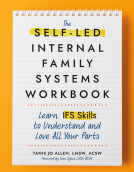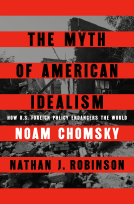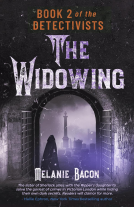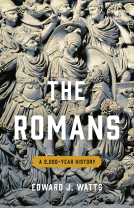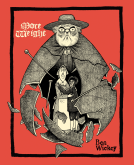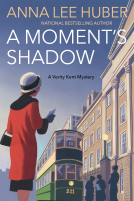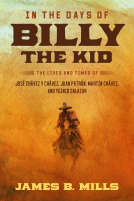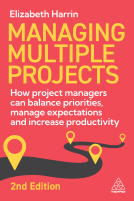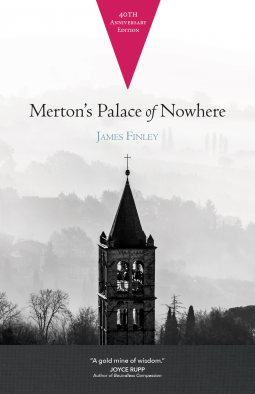
Merton's Palace of Nowhere
40th Anniversary Edition
by James Finley
This title was previously available on NetGalley and is now archived.
Send NetGalley books directly to your Kindle or Kindle app
1
To read on a Kindle or Kindle app, please add kindle@netgalley.com as an approved email address to receive files in your Amazon account. Click here for step-by-step instructions.
2
Also find your Kindle email address within your Amazon account, and enter it here.
Pub Date Feb 02 2018 | Archive Date Mar 08 2018
Talking about this book? Use #AveMariaPress #NetGalley. More hashtag tips!
Description
For forty years, James Finley’s Merton’s Palace of Nowhere has been the standard text for exploring, reflecting on, and understanding the rich vein of Thomas Merton’s thought. Spiritual identity is the quest to know who we are, to find meaning in our own lives, to overcome that sense of “Is this all there is?” Merton’s message cuts to the heart of this universal quest, and Finley illuminates that message as no one else can.
As a young man of eighteen, James Finley left home for an unlikely destination: the Abbey of Gethsemani, where Thomas Merton lived as a contemplative. Finley stayed at the monastery for six maturing years and later wrote Merton’s Palace of Nowhere in order to share a taste of what he had learned on his spiritual journey under the guidance of one of the great religious figures of our time. At the heart of the quest for spiritual identity are Merton’s illuminating insights—leading from an awareness of the false and illusory self to a realization of the true self.
Dog-eared, tattered, underlined copies of this book are found on the bookshelves of retreat centers, parish libraries, and the homes of spiritual seekers everywhere. This anniversary edition brings a classic to a new generation and includes a new preface by Finley.
Features & Benefits
More than 100,000 copies of the book have been sold.This fortieth anniversary edition is being released fifty years after Merton’s death.The original foreword was written Henri J. M. Nouwen. James Finley continues to maintain a busy schedule lecturing and leading retreats.A Note From the Publisher
Finley has a doctorate in psychology from Fuller Theological Seminary, a master’s degree in education from St. John College, and a bachelor’s degree in English literature from the University of Akron.
He lives with his wife, Maureen Fox, in Marina del Rey, California.
Advance Praise
“James Finley is a superb mentor of spiritual transformation. Merton’s Palace of Nowhere contains a gold mine of wisdom. It is a book that will never leave my library. There are always more nuggets of spiritual growth in this book that wait for my discovery.”
Joyce Rupp
Author of Boundless Compassion
“May the clear and compelling message of this book encourage us all to follow along the authentic path of Christian discipleship.”
Br. Patrick Hart, O.C.S.O.
Abbey of Gethsemani
“This now-classic text celebrates its fortieth anniversary of publication on the fiftieth anniversary of Thomas Merton’s death. In the intervening years, James Finley’s poetic and insightful exploration of the true self and Merton’s many contributions to the spiritual life has proven an invaluable resource and guidebook. With this new edition, more readers will have the opportunity to accompany Merton’s former novice in learning to see themselves, the world, and God with renewed vision.”
Rev. Daniel P. Horan, O.F.M.
Author of The Franciscan Heart of Thomas Merton
“Few people can write with as much authority on Thomas Merton as can his former student James Finley. Let Finley, in this new edition of his now-classic book, introduce you to one of the greatest spiritual masters of our age, and the man whose writings changed many lives, including my own.”
Rev. James Martin, S.J.
“James Finley describes the spiritual life as the long and often arduous journey on which we slowly become detached from our false, illusory self—a self that is little more than the collective evaluations and affirmations of our surroundings—and are opened up to receive a new self that is participation in the life of God. In this journey that we all must make if we take our search for God seriously, Merton proves to be an excellent guide.”
From the foreword to the first edition by Henri J. M. Nouwen
Available Editions
| EDITION | Paperback |
| ISBN | 9780877930419 |
| PRICE | $16.95 (USD) |
Featured Reviews
 Librarian 431790
Librarian 431790
Thomas Merton was a mystic and his words and thought are timeless and both Christians and non Christian can be inspired by them.
This books gave a lot of food for thought and touched some deep chords.
Highly recommended for spiritual people.
Many thanks to Ave Maria Press and Netgalley
 Eva L, Educator
Eva L, Educator
The timeless wisdom of Merton ( if you have not read Merton before, then it's high time- seriously), coupled with wise discernment and guidance. This is a book for the ages.
Merton's Palace of Nowhere gazes at the heart of Thomas Merton's (a Trappist monk, Catholic writer and Christian mystic) theology, its importance and applications for those searching for spiritual realities.
WHO WOULD ENJOY READING IT?
Though Christian mysticism is not as popular as it once was, there is a lot to learn from that branch of Christianity. people with an affinity for that spiritual stream will love this book. Adherents of other religions can also glean valuable insights as the book examines a few basic tenets shared across most spiritualities - the human soul, prayers, the value of silence, etc.
WHAT I LOVE ABOUT IT
The topic of "self" and the role it spiritually plays is a key part of Christianity. There are debates as to whether it helps or distracts humans from pursuing spiritual ideals. With a bit of elaboration from James Finney, Merton dissects this in a clear way - such that I have never heard or read before. It was also life-changing to hear what Merton has to say about prayers and how he approaches it without anxiety, stress, and ego's demand to perform it well.
MEMORABLE PASSAGE
"We pray not to recharge our batteries for the business of getting back to the concerns of daily life, but rather to be transformed by God so that the myths and fictions of our life might fall like broken shackles from our wrists. We withdraw within not to retreat from life but to retreat from the constant evasion, the constant fearsome retreat from all that is real in the eyes of God.
"The desert where prayer flourishes is the desert of our own hearts barren of all the slogans that we have been led to believe to be our very identity and salvation."
.......
Merton's Palace of Nowhere by James Finley was first published in 1978. The 40th year anniversary edition will be available to buy on all major online bookstores by February 2018.
Many thanks to Ave Maria Press for review copy.
 Anne P, Reviewer
Anne P, Reviewer
As a young contemplative, James Finley had the opportunity to learn under Thomas Merton at the Abbey of Gethsemani. Years later, he shared those insights into Merton’s thinking in his book, Merton’s Palace of Nowhere. Now forty years later, Finley’s work is being reissued, and this book remains as startlingly insightful as it was when first published. Merton was capable of seeing through to the truth of our reality in a way that few us achieve, and Finley’s writing makes that wisdom all the more accessible for us. This small volume, which begins by distinguishing our true and false selves and ends by instructing on the two selves’ ultimate conclusion in death, provides sufficient material for a lifetime of contemplation. Whether revisiting this volume or discovering it for the first time, Merton’s Palace of Nowhere should not be missed by the serious contemplative, lay or otherwise.
Oh my goodness, this book. Before this book, I didn't have any prior knowledge of or experience with Merton. Merton's Palace of Nowhere was not only the perfect introduction to all things Merton, but was beautifully impactful to my spiritual life. I found myself stopping what I was reading, to allow myself the chance to really mull over what I had just read. (Because of this, it took me about two months to finish this book! Which is highly unusual for me.) I just felt that if I rushed through, I would miss deeply hidden treasures. And I found that this was absolutely the case. What an incredible book that I will read again and again.
An exploration into a systemic presentation of some of Thomas Merton's conceptions of the false self vs. the true self in light of the contemplative tradition.
The author had personal experience working with Merton and was manifestly profoundly influenced by him. He has taken on the mantle by attempting to systematize a bit of what Merton was exploring regarding the contemplative tradition and the search for relationship with God.
The premise of the book is the existence of the "false self" versus the "true self" - the "false self" being the one we have constructed in our fallenness, and the "true self" the person within we ought to be in full communion with God. The author explores the challenges and complexities of the construction of the false self and the great difficulty it requires to get glimpses of the true self. The value and power of the contemplative tradition is examined in light of this. The goal, it would seem, is to become okay with one's essential no-thing-ness in light of God being no-thing, and this leads to the idea of Merton's "palace of nowhere," finding full relationship in God through a recognition of our complete inability to stand before God by anything of our own merit and developing a relationship with God in prayer based in silence, meditation, and the "nothingness" that may seem to transpire in it, to arrive at nowhere in particular but in the light of God's presence.
The book is full of anecdotes and quotations of Merton. I cannot attest to how effectively the author has channeled Merton's thought process; while the strict duality of the "true" and "false" self causes me to blanch a bit, concerned about a little bit of Gnosticism which may be present, the conceits and deceits of the "false self" as described are real enough, and the mystical tradition is something which may have a word to speak in the current trials and distress of life.
An interesting exploration.
Readers who liked this book also liked:
Tanis Allen, LMSW, ACSW
Health, Mind & Body, Self-Help
